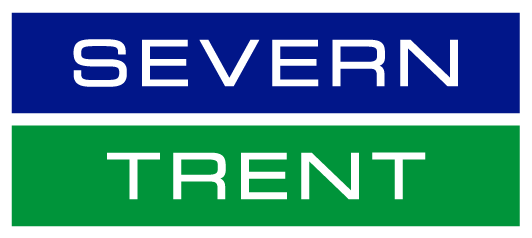From Operational Apprentice to Team Leader: Meet Georgia
At just 25 years old, Georgia Brown has already made significant strides in her career at Severn Trent. Joining the company just eight and a half years ago through the operations apprenticeship programme, Georgia has since held various roles across water and wastewater, including positions as a commissioning engineer, process engineer, and process scientist – working her way up to her role today as Wastewater Recycling Team Manager.
We spoke to Georgia to find out more about her journey to help understand more about how she got there and to inspire others to join us.
Thank you so much for sharing your story, Georgia! Tell us a little about yourself, what led you to take an apprenticeship, and how that has enabled you to be where you are now in your career?
At school, I was always enjoyed STEM subjects. Initially, I was unsure about which route to take as I knew I could complete a degree, but I also had a strong drive to start my career journey.
To keep my options open, I decided to apply for both engineering and science degrees and also apprenticeships, although my school mostly pushed me to attend a university rather than pursue an apprenticeship.
The research into apprenticeships was done by myself with the help of my parents, as apprenticeships were not widely seen as an option for academic students at the time. However, this perception has changed with the breadth of apprenticeships and the level of qualifications now available.
Although, I didn’t join the company on a degree-level apprenticeship, my hardworking nature and the support from my manager allowed me to go on to study for a master’s degree in water and wastewater engineering at Cranfield University.
The Water Treatment Process Apprentice I joined allowed me to study alongside my work, which complemented each other well, and I was given the opportunity to progress into more senior positions even at a young age. I now have over eight years of industry experience and qualifications tailored to the role.
At Severn Trent, there are numerous options for personal and career development. Looking back, I have zero regrets about declining my university offers and starting my apprenticeship at Severn Trent.
We’re glad you found us Georgia! So, can you tell us a little bit about your current role as a team manager and what it’s like to work in operations?
As the Non-Infra Wastewater Recycling Team Manager at Severn Trent, I manage 35 wastewater treatment works and over 100 pumping stations, along with a team of 18 operators and maintainers in the Rugby area. My path to becoming a team manager was further supported by Severn Trent’s Future Leader Programme, run at our own Academy, which is designed to develop those already in the business with the potential to move into management positions.
Working in operations varies greatly day-to-day, with weather and seasonal changes affecting how we operate. It is an exciting time to work in operations as the company focuses on tighter targets to improve river water quality and minimise our environmental impact.
I love that in my role, I get to drive improvements and see the impact our work has on protecting the environment and meeting key business targets. There are never two days the same, and I never feel like I have nothing to do. I have a fantastic team working for me, and I find people management incredibly rewarding. It’s great to support my team and feel like I am a part of their career journey too.
What a fantastic opportunity – it truly sounds like you love making a difference! Could you explain why inspiring more women to pursue STEM roles is important to you?
At school and during my career, I have often found that I am one of a small number of women in the classroom or role. Similarly, in school, STEM subjects were rarely seen as the route for girls, with many of my friends choosing not to study them further past GCSE.
I have seen massive changes since joining the company, with more women entering STEM roles. We have lots of support here at Severn Trent with Diversity & Inclusion initiatives, including the Women’s Network , which I am a part of. Since being established, we have improved PPE, facilities, policies, and mentoring, while also reaching out to others across the business and to young females in schools.
There is no reason why women can’t go into STEM roles, as they are becoming increasingly more accessible. I would definitely recommend someone considering applying, as there is so much support and so many development opportunities. All you need to do is ask.
Would you like to follow a similar path to Georgia?
Check out our exciting operational apprenticeship roles. Your future could start here.
